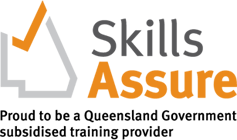Online learning is convenient and practical for academic and professional development. You can complete these courses from the comfort of your home and still gain valuable qualifications.
Online teaching courses are educational programs that you can complete through digital platforms. These courses can equip individuals with the knowledge, skills, and tools necessary for effective teaching in various educational settings.
Sage Education has various online courses that can advance your teaching career. We will help you enhance your resume and cover letter so that employers will be more likely to hire you.
Our guide discusses the opportunities, benefits, and challenges of completing an online teaching course. Keep reading to learn more about online teaching and the types of courses you can take.
The Benefits of Online Teaching Courses
The advantages of completing teaching courses online don’t just focus on convenience. It’s also about catering to the diverse needs of individuals seeking to shape young minds. Here, we delve into the reasons why studying teaching online has become an increasingly attractive option.
Flexible scheduling
Flexibility is one of the benefits of online education. Aspiring teachers can tailor their study schedules to accommodate work commitments and personal responsibilities.
This flexibility fosters a healthier work-life balance and enables individuals to pursue teaching credentials without the constraints of classroom schedules.
Not only that, but traditional classrooms often adhere to a standardised pace and leave some students feeling left behind or others unchallenged. Every learner has a unique pace at which they absorb information. Online teaching courses accommodate varied learning paces to suit your specific needs. Students can revisit lectures, delve deeper into complex topics, or accelerate through familiar material to ensure a customised and effective learning experience.
Accessibility for diverse learners
Online teaching courses eliminate geographical restrictions, making education accessible to individuals from diverse backgrounds.
Whether located in remote areas or bustling urban centres, aspiring teachers can access quality education without the need for relocation. This democratisation of education encourages inclusivity, ensuring that talented individuals can contribute to the profession of teaching.
Online teaching courses also encourage inclusive learning environments. These environments should accommodate individuals with diverse learning needs. Learners with hearing or visual disabilities can benefit from accessibility features such as closed captions, transcripts, and custom font sizes.
Students can also engage in these online courses at their own pace, which accommodates different cognitive styles and preferences.
Abundance of resources and materials
The digital era has introduced various educational resources that are readily available online. You can access teaching materials, research articles, and interactive learning tools. Online teaching platforms leverage multimedia resources, engaging modules, and collaborative tools to enhance the learning experience. These resources enhance your educational journey and empower aspiring teachers to stay updated on the latest teaching trends.
Early Childhood Education Courses Online with Sage
Training in early childhood education provides individuals with knowledge, skills, and strategies for working with young children.
These courses are suitable for future educators, caregivers, and professionals. These professionals will learn how to create a positive and developmentally appropriate learning environment for young people.
Here are our early childhood education courses at Sage Education:
Certificate III in Early Childhood Education and Care
The Certificate III in Early Childhood Education and Care is a vocational qualification. This program can prepare you for a career in early childhood education and care. It is the minimum qualification that allows educators to apply for early childhood jobs in Australia. Kindergartens, family daycares, extended daycares, and school-aged care are some of the services available.
The main components of our early childhood education course include:
- Safety and well-being: As an early childhood educator, you will implement health and safety practices. It’s also essential to promote the physical well-being and nutrition of young children.
- Learning and play: You can design and implement play-based learning activities in this course. This also includes fostering language and literacy development in young children.
- Observation and documentation: It’s important to develop observational skills to assess and document children’s progress. You will also maintain accurate records of children’s learning and development.
- Communication and collaboration: You will build positive relationships with children and families. This also means you can collaborate with colleagues and other professionals in the early childhood sector.
- Legal and ethical responsibilities: This course will teach you how to understand and adhere to legal and ethical guidelines in early childhood education. It will also help you ensure a safe and inclusive environment for children.
- First aid and emergency response: You will acquire basic first aid skills for responding to common childhood injuries and understand emergency procedures.
- Work placement: Gaining practical experience through work placement in an early childhood education and care setting is essential.
You can complete this program over 12 months, but you must also complete 160 hours of vocational placement.
Completing our Certificate III in Early Childhood Education and Care enables you to work as a qualified educator or assistant in various early childhood backgrounds. This includes childcare centres, preschools, and family daycares.
Diploma of Early Childhood Education and Care
The Diploma of Early Childhood Education and Care is a higher level vocational qualification. It is suitable for those aspiring to take on leadership roles or advance their careers in early childhood education and care.
Our diploma program builds on your foundational knowledge from lower level courses, such as the Certificate III in Early Childhood Education and Care. It provides a more comprehensive and in-depth understanding of the principles and practices within the early childhood sector.
This course includes aspects such as:
- Leadership and management: You will focus on developing leadership and management skills in early childhood environments. The same goes for learning how to lead a team of educators and contribute to the effective management of childcare services.
- Curriculum planning and implementation: This course will help you design and implement high-quality early childhood education programs. You will also understand curriculum frameworks for play-based learning.
- Inclusion and diversity: It’s essential to promote inclusive practices in early childhood education. You will address the diverse needs of children, including those with special needs or from diverse cultural backgrounds.
- Assessment and documentation: You can implement comprehensive assessment strategies for monitoring children’s learning and development. This course also focuses on maintaining detailed records and documentation in accordance with regulatory requirements.
- Professional development: You will engage in continuous professional development to stay informed about best practices and emerging trends. It’s also important to demonstrate a commitment to ongoing learning and improvement.
- Work placement and practical experience: Our course focuses on extended work placements so you can apply theoretical knowledge in real settings. You will also gain hands-on experience in leading and managing an early childhood education program.
You can also complete this program over 12 months, but this time, you must complete 280 hours of vocational placement.
Completing this course qualifies people to work as lead educators, centre directors, or coordinators in childcare centres and preschools. Our diploma program also provides a pathway for further education, such as pursuing a Bachelor’s degree in early childhood education.
Online Courses for School Teachers
In Australia, there are several online courses available for school teachers. These courses provide opportunities for professional development and continuing education.
Here are some examples of online courses for school teachers in Australia:
Australian Professional Standards for Teachers (APST)
Various organisations and educational institutions offer online courses aligned with the APST. These courses provide teachers with a deeper understanding of the professional standards and strategies for meeting them.
The Australian Institute for Teaching and School Leadership has everything you need to know about the standards. These standards can help you understand how students learn and ways you can teach content. AITSL also offers a range of online modules and courses covering each of the seven standards. Each course provides teachers with insights, resources, and strategies for meeting the APST requirements.
Queensland College of Teachers (QCT) has various online professional development courses for teachers in Queensland. Some topics cover classroom management, leadership, and educational technology.
Online Graduate Certificate in Education
Universities across Australia offer graduate certificate programs that you can complete online. These programs allow teachers to specialise in areas such as educational leadership, inclusive education, or curriculum design.
Some universities include:
– University of Melbourne – Melbourne Graduate School of Education: The University of Melbourne offers online graduate certificates in education with various specialisations. These include educational research, inclusive education, and learning intervention.
– University of Sydney – Sydney School of Education and Social Work: The University of Sydney also provides online graduate certificates in education. This allows educators to specialise in areas such as TESOL (teaching English to speakers of other languages) and inclusive education.
– Queensland University of Technology (QUT) – School of Teacher Education and Leadership: QUT offers the same graduate certificate that covers areas like leadership and management in education, inclusive education, and TESOL.
STEM Education Online Courses
Science, technology, engineering, and mathematics (STEM) education courses help teachers incorporate STEM principles into their teaching. These courses include project-based learning and practical activities.
Deakin University offers an online graduate certificate in STEM education. The program is for educators looking to expand their understanding of STEM education and enhance their teaching methods.
Australian Science Teachers Association (ASTA) also has professional development for STEM education. This organisation provides various professional development opportunities for educators, including online courses covering subjects like science inquiry and STEM integration.
Tips for Success in Online Teaching Education
Starting your online teaching education journey can be exciting and challenging. To ensure success in your studies and future career, consider these valuable tips:
Practise good time management
Online learning does offer flexibility, but it still requires disciplined time management. You should create a realistic schedule that includes dedicated study time, assignments, and live sessions. Remember to stick to your schedule to maintain a consistent learning routine.
It’s also worth leveraging technology to enhance your time management skills. Use calendars, task management apps, and reminders to stay organised.
Stay connected with peers and instructors
You should actively engage with your peers and instructors despite the physical distance. This means participating in discussion forums, virtual study groups, and online meetings. Building a strong online community fosters collaboration, support, and a sense of belonging. You can also reach out to these people for support or questions.
Set clear goals
You should create your academic and career goals early on in your education. Having a clear vision will help you stay focused and motivated throughout the program. Break down your goals into smaller, achievable milestones to track your progress.
Use technology effectively
It’s worth embracing the technological tools you currently have on hand. You should familiarise yourself with the online learning platform, communication tools, and multimedia resources.
Being able to use technology will enhance your overall learning experience and prepare you for the digital aspects of modern education.
Seek support when needed
Don’t hesitate to seek support if you experience educational challenges. Whether it’s technical issues, academic concerns, or personal matters, most online programs offer support services. You should contact instructors, academic advisors, or online support forums to address any issues.
Here at Sage Education, we want every person to receive the support they deserve when completing our online programs. You can speak with a professional virtually on our website or contact us with questions.
Enrol with Sage Education for Convenient Online Teaching
Completing online teaching courses can help advance your career in education. These qualifications will enhance your resume and make your skills more appealing to future hiring managers. Studying online gives you freedom and allows you to create your own schedule.
At Sage Education, we have teaching courses to suit your needs. For more information on these online courses and how to apply for them, contact us today. It’s time to position yourself for a fulfilling and impactful career in education!



